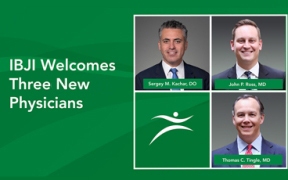The Best Concussion Treatment is Brain Safety
Our brains are our most valuable resource, and we should take care of them. With all of the news circulating in the media on the topic of athlete brain health, being extra conscious of how we are treating our brains is key. To ensure the best chance of living a happy and healthy life for as long as possible, we must take precaution.
Brain Health for the General Public
There are several ways to optimize brain health. Most of these tactics are actually very similar to how we try to stay healthy in other ways. This includes eating healthy, getting regular exercise, and avoiding substances that are toxic to our brains such as tobacco, excessive alcohol, and illicit drugs. Another very important way to promote brain health is the proper management of underlying medical conditions. These scenarios include excessively high blood pressure, high cholesterol, and diabetes.
It’s important to note that over time these situations can lead to the damage of brain tissue and progress poor brain health. Lastly, we all should be exercising our brains especially as we get older. Think of your brain as a muscle on the body. Just as you would go for a job to exercise your legs and heart, you should also regularly flex your brainpower to keep it “in shape.” This means staying engaged in regular cognitive activities including work, personal hobbies, and social activities.
Brain Health for Athletes
There are several key aspects to consider when thinking about promoting the brain health of athletes. While we cannot prevent all head injuries, particularly in contact sports, we can limit an athlete’s exposure to repeated brain trauma. This subsequently decreases the risk of head injury. This is best accomplished through good technique, following the rules, having a keen awareness of on-field scenarios, and lowering cumulative impact exposure through multiple sport athletes or year-round play.
Understanding Brain Conditions
The second way to conserve athlete brain health is simply by understanding the brain before an injury occurs. We know athletes suffer from the same common neurological or psychological issues as everyone else such as headaches, poor or inadequate sleep, mood issues, anxiety, and depression. We also know that these underlying issues may be a risk for increased symptoms and prolonged recovery following a concussion – in addition to a decreased quality of life. This is where a detailed baseline neurological evaluation and management plan can help improve athlete brain health.
Acknowledging Post-Concussion Syndrome
The third way is recognizing how an athlete recovers from injury. Do they recover in a normal time frame, or is there a prolonged recovery? If so, what might be this cause? We know that a certain percentage of concussed individuals go on to develop a condition called post-concussion syndrome. That is why each and every possible concussion should be evaluated in a timely fashion. This allows your physician to create an appropriate management plan that can be put in place to increase the chances of a timely recovery. With concussion management changing almost daily, consultation with a concussion specialist is important for the most up to date information and treatment.
Analyzing Long-Term Concussion Side Effects and Brain Health
The last way of ensuring athlete brain health is making sure the player is doing well during continued sport participation and beyond playing days. If there are concerns about brain health years down the line, often times there are treatable conditions which are contributing to symptoms including chronic pain, poor quality sleep and mood disorders. For this reason, a detailed neurological evaluation is crucial.
Brain Health and Concussion Treatment in Illinois
At IBJI Sports Neurology we treat athletes, weekend warriors and non-athletes of all ages. We specialize in overall brain health, which includes the evaluation and management of common neurological conditions, concussions, and post-concussion syndrome. We offer in-depth pre-season neurological evaluations, timely concussion evaluations and management of long-term neurological conditions.
For more information on prolonging and optimizing brain health, please contact IBJI through our sports neurology service line. By calling 847-682-8463, you can schedule an appointment with our neurology specialist, Dr. Anthony Savino, and discuss your brain health today!




